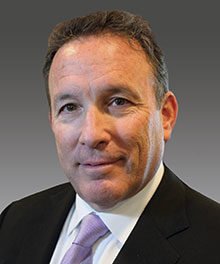Jimmy Carter’s Leadership Legacy

Former president Jimmy Carter entered hospice care this week at age 98 as the nation’s longest-lived president. Although President Carter faced challenges during his years in the White House that limited him to a one-term presidency, he built a legacy as one of our most successful world leaders through the diplomatic and charitable work he did in the years after leaving office in 1981. The best was yet to come.
No matter what side of the aisle you sit on, there are many things to admire about how President Carter has conducted himself as a leader. Key among them is integrity. With the country shaken by the Nixon Watergate scandal at the time he ran for office as a peanut farmer from small-town Georgia, his platform was to bring honesty back to the White House, and it was a value he demonstrated consistently as a president and in all of his endeavors. He was proud to be an outsider and he stayed true to his values, even when he came under fire.
He was also firmly on the side of peace. Those of you of a certain age will remember he was the president who negotiated the Camp David Accords that ended the war between Israel and Egypt, one of many activities that led to his winning the Nobel Peace Prize in 2002. He also spent years as a diplomat in regions like Nicaragua, Ethiopia and North Korea; negotiated the treaties that gave us control of the Panama Canal, and became the face of Habitat for Humanity, building and repairing some 4,000 homes in 14 countries with his wife Rosalynn.
Beyond his humanitarian work, he has been a passionate environmental steward since long before anyone was using the words “climate crisis.” He was the president who authorized the Superfund—just before he left office—paving the way for the cleanup of hazardous waste sites around the country for decades to come. His love of the land was genuine, and he returned to his beloved Plains, Ga., a rural town of 500, after he retired from the Oval Office, and has spent the balance of his life living there.
No leader is perfect, and Carter lost a potential second term to Ronald Reagan, as the public tired of the double-digit inflation, high unemployment and gas lines of that time, amid headlines about the Iran hostage crisis and Three-Mile Island meltdown.
But by keeping his eye on the bigger picture—how he could contribute to humanity—he always managed to stay relevant and make a difference. As he once put it, “I have one life and one chance to make it count for something. I’m free to choose that something. My faith demands that I do whatever I can, wherever I can, whenever I can, for as long as I can.”
He was the embodiment of servant-leadership in everything he did, and no doubt will inspire future leaders—including business leaders—for decades to come, providing a powerful living reminder that we all have opportunities to understand our place in the world and do good in our chosen fields. As we celebrate his life, it’ll be equally important to embrace his legacy of giving back by choosing our own “something” and doing what we can to make it count. Whether in business or in our lives outside of work, we can all find opportunities to serve and leave a lasting impact for others.
